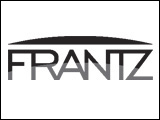The executive director of the Manitoba Livestock Manure Management Initiative says the use of hot water pressure washing equipment is helping custom swine manure applicators reduce the risk of spreading Porcine Epidemic Diarrhea.
Biosecurity considerations for commercial swine manure applicators in light of PED was among the topics discussed as part of a water and nutrient management field day Friday at the University of Manitoba’s Glenlea Research Station.
John Carney, the executive director of the Manitoba Livestock Manure Management Initiative, reports we’re seeing a lot more interest in the use of hot water pressure washers.
Hot water works better than cold water for a number of reasons.
It cleans faster so it’s quicker to use and because it cleans faster and is quicker to use it needs less water.
Since you’re not crossing the line of separation, manure applicators wouldn’t go into the barn to get water.
They’d bring water on site with them if they’re going to be pressure washing on site and then finally and perhaps equally important is dry time.
Hot water heats up the equipment and the water dries faster and drying is an important part of cleaning, sanitizing and drying.
The cost, it’s like anything.
You can get basic models up to more involved and complex models.
I’ve heard figures like up to 50 thousand dollars for a complete trailer with a capacity to hold the volume of water that’s required and the equipment to heat the water and apply it under pressure as well as to bring in the desantizer, the sanitizing agents.
Obviously hog producers, like anybody, would prefer not to pay more however I think when they look at the risks, even if it’s a small risk, I think they’ll conclude that it’s a wise investment.
Carney commends the manure applicators for their vigilance and their hard work in dealing with what has been an extremely challenging development in their business.



